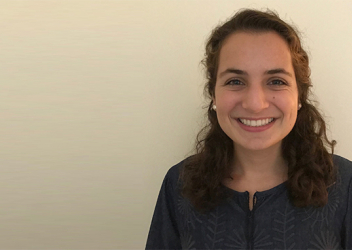Research In Action
Research In Action
Breadcrumb

Since high school, I have always been interested in the field of neuroscience. As an undergraduate student at Drexel University majoring in the Health Sciences, I was able to expand on my knowledge and understanding of this field through classes such as Anatomy and Physiology and Physiological Psychology. While I was able to engage in neuroscience-related research at Drexel examining the sensorimotor system of the common fruit fly, I realized that I wanted to explore the field more.
Through my recent 6-month co-op internship at the Center for Injury Research and Prevention (CIRP) at Children’s Hospital of Philadelphia (CHOP), I was given the opportunity to experience a more hands-on approach to neuroscience and behavioral research through a study on concussion and driving. I worked with Dr. Catherine McDonald and many others on the Driving After Concussion study to examine the effect of concussions on driving in teens.
Before joining this study, I had only heard brief mention of concussion in my science classes. While I understood the many causes behind a concussion, I was unaware of the treatment and recovery process.
After becoming familiar with the scientific literature about driving and concussions, I found it fascinating that despite the severe symptoms associated with concussions and how they can impair an individual’s ability to perform the cognitive tasks associated with safe driving, concussed individuals are permitted to drive within 24-48 hours after injury. It soon became clear to me that more research is needed to improve recommendations for safe driving after concussion.
As a part of Dr. McDonald’s team, I also learned how to use functional near-infrared spectroscopy to detect differences in cognitive demand for different distraction driving events (such as texting or looking up music), which makes driving more dangerous. This work led to an abstract presentation at the January 2022 Transportation Research Board meeting.
From Co-Op Student to Research Assistant
Most recently, I was given the opportunity to be a part-time Research Assistant on Dr. McDonald’s team and will become a full-time Research Assistant when I graduate in June 2022. In this role, I assist with recruiting and enrolling participants, as well as leading study visits where I perform neuropsychological assessments, clinical exams, pupillometry (eye) exams, and run the driving simulator. I have also been involved in analyzing the data we collected over the past year. These experiences gave me a greater understanding of the time and effort that is involved in recruiting for and conducting a research study.
Upon entering college, I knew I wanted to pursue a career in healthcare. While my original intention was to become a physician, this training experience at CIRP and the role of neuroscience in injury prevention research gave me exposure to optometry and the many opportunities in this field. I am grateful to everyone at CIRP for helping me shape my future career in optometry.




